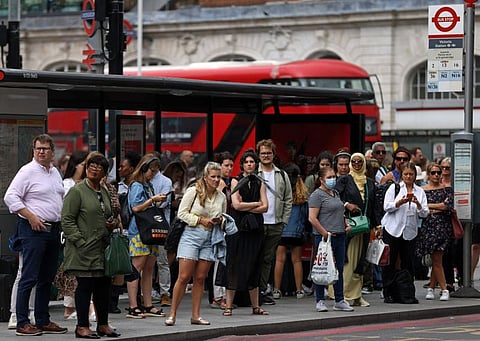UK’s massive new budget will push more British expats toward the UAE
UK taxes hiked by £26 billion, expats to weigh savings and pension implications

Dubai: Britain’s latest budget is drawing strong interest among UAE-based British expats, with several measures set to raise personal tax burdens for residents in the UK while leaving overseas nationals largely unaffected. Advisers say the contrast could make the Gulf — particularly the UAE — more appealing for long-term financial planning.
The budget introduces higher voluntary national-insurance contributions for Britons paying into the UK state pension from abroad. It also raises questions for those holding Individual Savings Accounts (ISAs) while living overseas, prompting some expatriates to review how they structure future repatriation plans.
London tourist tax
England’s mayors will also be able to introduce a new “tourist tax” on overnight stays, potentially increasing travel costs for UAE visitors to London and other cities. A consultation is under way on the levy’s design, with proposals suggesting a £2 (Dh9.40) nightly charge on hotels and short-stay rentals.
Tony Smith, Head of Tax, Technical & Advice Delivery at St. James’s Place – Asia & Middle East, said the changes may reshape long-term thinking for internationally mobile families. “Some expats may pause and reassess their plans, particularly around pension and ISA arrangements,” he said, adding that voluntary national-insurance payments “will become more expensive for those maintaining eligibility for a future UK state pension.”
Smith noted that relocation choices are rarely driven by a single policy announcement. “The UAE and wider GCC offer a simple and predictable tax environment and strong regulation,” he said. “For Dubai in particular, the Budget is likely to deepen interest from individuals looking for certainty in cross-border planning.”
Tax increases
In the UK, Chancellor of the Exchequer Rachel Reeves announced £26 billion ($34 billion) in tax rises, including higher levies on gambling and prime real estate. Income-tax thresholds will remain frozen until 2031, pushing more UK-based workers into higher brackets. A new annual surcharge on homes valued above £2 million will begin in April 2028, ranging from £2,500 to £7,500 a year. About 153,000 homes will be affected, nearly 88% of them in London, according to Hamptons.
National insurance will also apply to salary-sacrificed pension contributions above £2,000 from 2029, a measure expected to raise £4.7 billion, according to the Office for Budget Responsibility (OBR). Reeves said the change ensures “people, especially on low and middle incomes, can continue to use salary sacrifice… without paying any more in tax than they do now.”
To ease household pressures, selected green levies will be cut, reducing average annual energy bills by around £150. Fuel duty, rail fares and prescription charges will remain frozen, while the two-child welfare cap will be lifted. Minimum-wage and state-pension increases will exceed inflation.
UK bonds and sterling swung sharply as markets assessed the balance between fiscal restraint and targeted spending. “This should lower the likelihood that the government will need to return to the tax well again,” wrote Matthew Ryan, head of market strategy at Ebury, adding that markets will now judge whether such restraint can support sustained economic growth.
Sign up for the Daily Briefing
Get the latest news and updates straight to your inbox




